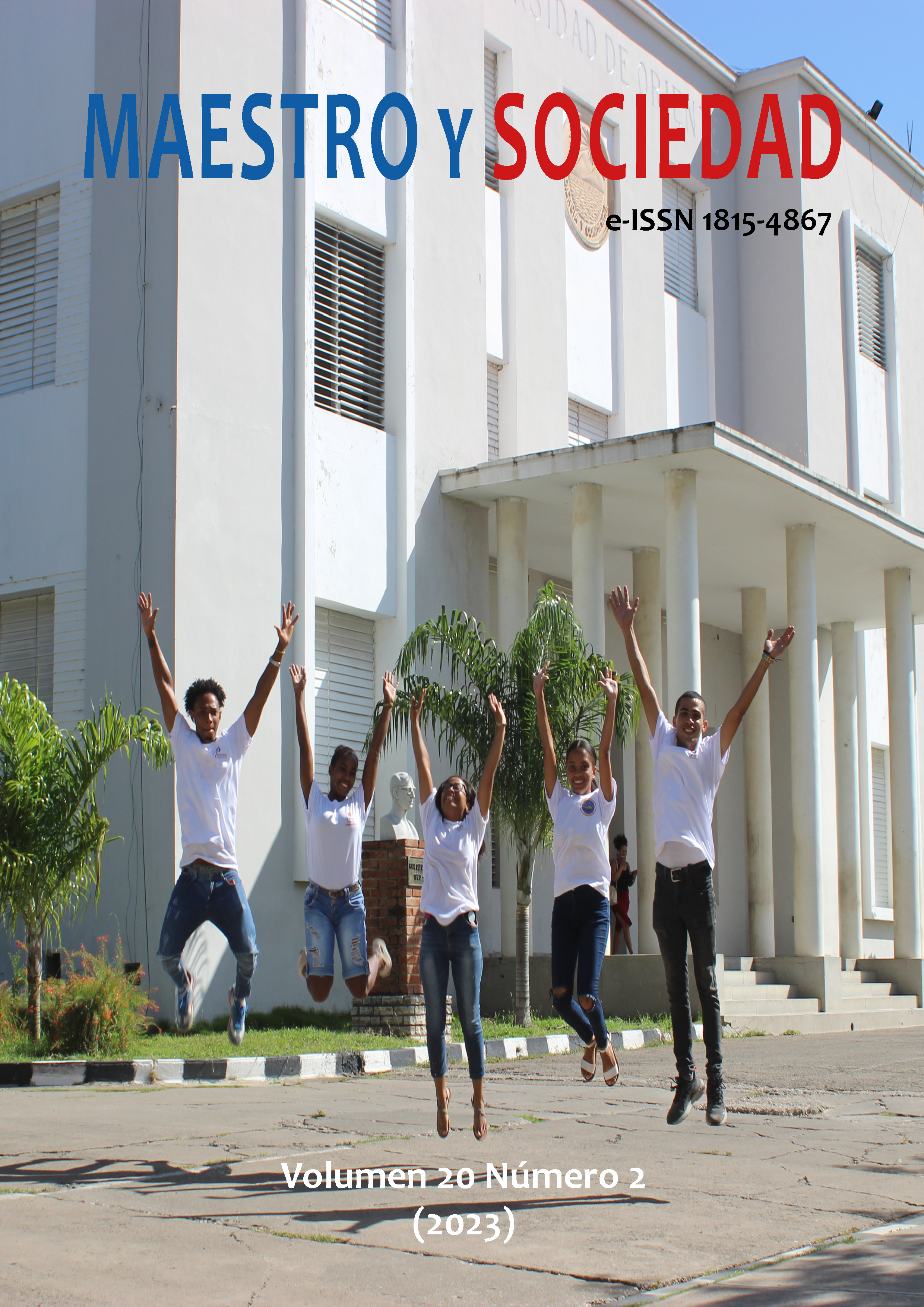Methodology for the process of artistic appreciation in the formation of the professionals of the education
Methodology for the process of artistic appreciation in the formation of the professionals of the education
Keywords:
artistic appreciation, permanent formation, Cuban cultureAbstract
Introduction: The process of artistic appreciation is instrumented in a methodology that favors the interdisciplinary approach by integrating the cognitive, affective and attitudinal contents of art with a totalizing character. Materials and methods: The declared methodology has the objective of promoting the development of the artistic appreciation process, through theoretical and practical knowledge to follow, with a flexible and dynamic character that allows the transfer of the artistic appreciation process, from the content as a way to promote the development of an artistic-aesthetic culture in these education professionals. Results: The methodology designed with an interdisciplinary approach constitutes an essential instrument for the didactic direction in the permanent formation of the Basic Secondary teacher through stages as an effective contribution to the solution of the detected problems, whose didactic value allows the gradual understanding and interpretation. Discussion: The process of artistic appreciation has an interrelated treatment not only within the area in which they are grouped, but also with the content of other disciplines to the extent that several of them contribute to developing the interpretative capacities of artistic appreciation. Conclusions: The validation carried out in the qualitative and quantitative order demonstrates the validity of the methodology for the appreciation process of the plastic arts and contributes to the solution of the detected insufficiencies and the need to apply the results.
References
Acha, J. (2016). Las actividades básicas de las artes plásticas. Editorial Adagio.
Ares, G. (2021). La Apreciación Plástica como aspecto importante del desarrollo estético de nuestros educandos. Revista Educación, (25), 32.
Cabrera, R. (2021). El yo de la creación artística. Una visión curricular. http://portal.UNESCO.org/fr/files/19772/20820159163
Eco, U (2018). Apocalípticos e integrados. Editorial Labor. htt://www.capurro.de/pregunta.htm
Ferrer Tellez, L. M. y Téllez Vigueaux, S. (2018). El legado de José Martí en la obra de Guarionex Antonio Ferrer Estiú (1947-2007) y un maestro de las artes plásticas de Santiago de Cuba. Maestro y Sociedad, (Especial 165 Aniversario del Natalicio de José Martí), 59-70. http://maestroysociedad.uo.edu.cu
Fuentes, C. (2017). Modelo Holístico Configuracional de la Didáctica. Universidad de Oriente.
Gadamer, H. G (1993). La verdad y método. http:/www.wikilcarmng.com/articulo-gusto-estetico-en-la-sociedad-Posindustrial-elgusto-por-lo-interesante-y-pintoresco/17785-2
González, R. (2016). Sujeto y Subjetividad: una aproximación histórico-cultural. Editorial Pueblo y Educación.
Hernández, F (2020) La necesidad de repensar la educación de las artes visuales y su fundamentación en el estudio de la cultura visual. Congreso Ibérico de Arte-Educación.
Nava, O (2019). La comprensión hermenéutica en la investigación educativa. Salamanca.
Téllez Vigueaux, S. y Ferrer Tellez, L. M. (2017). La labor pedagógica del escultor René Valdés Cedeño (1916-1976). Maestro y Sociedad, 14(4), 698-710. http://maestroysociedad.uo.edu.cu
Downloads
Published
How to Cite
Issue
Section
License
Copyright (c) 2023 Enrique Alfonso Rizo Chig, Inés Bárbara Verdecia, José Enrique Ricardo Lazo, Julia Elena Tabera Delis

This work is licensed under a Creative Commons Attribution-NonCommercial-NoDerivatives 4.0 International License.
This journal provides immediate open access to its content, based on the principle that offering the public free access to research helps a greater global exchange of knowledge. Each author is responsible for the content of each of their articles.



























 Universidad de Oriente
Universidad de Oriente 